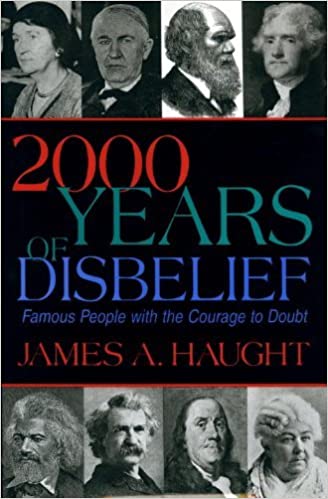This piece was reprinted by OpEd News with permission or license. It may not be reproduced in any form without permission or license from the source.
Elections of 1796 and 1800 "turned into a cosmic battle between God and the devil, and America's first culture war was on," Prothero wrote. Alexander Hamilton called Jefferson "an atheist in religion and a fanatic in politics." Amid the tumult, "conservatives scapegoated immigrants as 'hordes of ruffians' and 'revolutionary vermin'" (somewhat like today's Republican denunciations of Hispanics and Muslims).
In the end, Jefferson triumphed, and America became more inclusive of dissimilar people.
The second culture war cited by the professor was a wave of violent "nativist" Protestant attacks on Catholics around America. In 1844, Catholic-Protestant hatreds triggered a cannon battle in the streets of Philadelphia, killing dozens. Anti-Catholic riots and church-burning ensued into the 1850s, spawning the "America for Americans" Know-Nothing Party, which won 75 seats in Congress in 1854. Gradually, hatred of Catholics receded, but Protestant prejudice lingered until John F. Kennedy won the presidency in 1960.
The third culture war was hostility and violence toward Mormons and their polygamy practice. Latter-Day Saints founder Joseph Smith and his brother were murdered by an anti-Mormon mob in Illinois in 1844. Also, "Mormon leaders would be sued, jailed, beaten, stripped naked, tarred and feathered, and murdered," the professor wrote. But this wave eventually faded, like bigotry against Catholics.
The fourth cited culture war was Prohibition in the 1920s, after evangelists and fundamentalists succeeded in banning alcohol. The struggle included alarms over flappers, jazz, race-mixing, smoking, cosmetics, hair-bobbing, Sunday golf -- and even evolution, as crystallized by the "Scopes Monkey Trial" in Tennessee in 1925. Government-enforced sobriety bred bootleggers, organized crime, and bribery of police and prosecutors. In the end, liberals won the right for Americans to drink if they wished. Conservative churches were defeated, and Prohibition ended.
The final and current culture war rose as a backlash against the tumultuous 1960s, when young Americans loosed the sexual revolution and war-denouncing counterculture. Racial desegregation, women's right to choose abortion, and banning of government-led school prayer further outraged right-wingers. Conservatives "saw American society drifting away from them, erasing forms of culture they held dear," Prothero says.
As a counterattack, the "religious right" Moral Majority rose, and white evangelicals put conservative Ronald Reagan in the White House. White-only "segregation academies" were started so conservative families could avoid mixed-race schools. "Family values" became a slogan for hating gays. Pro-life murder occurred when a few zealots killed doctors and nurses at abortion clinics. Claims flared that America is an exceptional "Christian nation."
But slowly, step by step, liberals carried the day. Gays won a nationwide right to marry. President Obama's health care expansion made medicine available to millions of families. Etc.
"Conservatives lost the contemporary culture wars and they lost them badly," professor Prothero says. "As the counterculture mainstreamed, American society continued to drift left." He cites numerous showdowns in which modern conservatives went down to defeat, "the lost causes of conservatism."
"The rage on the right that descended over the United States upon Barack Obama's 2009 inauguration" probably will burn itself out. "Fox News is rapidly being reduced to a rickety shrine to white male identity politics." Young Americans strongly favor marijuana legalization and same-sex marriage. "American culture is much less conservative now than it was in 1999."
Most Americans have accepted liberal victories, but Tea Party hard-liners still sound right-wing trumpets. Will culture wars continue forever? Will progressives keep pushing for more personal freedoms? Dr. Prothero concludes:
"Liberals can take comfort in the fact that they almost always win our cultural battles -- that the arc of American cultural politics bends toward more liberty, not less."
(Haught is editor emeritus of West Virginia's largest newspaper, The Charleston Gazette-Mail. This is a chapter from his 11th book, Hurrah for Liberals.)
(Note: You can view every article as one long page if you sign up as an Advocate Member, or higher).





